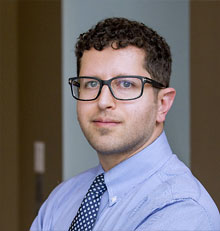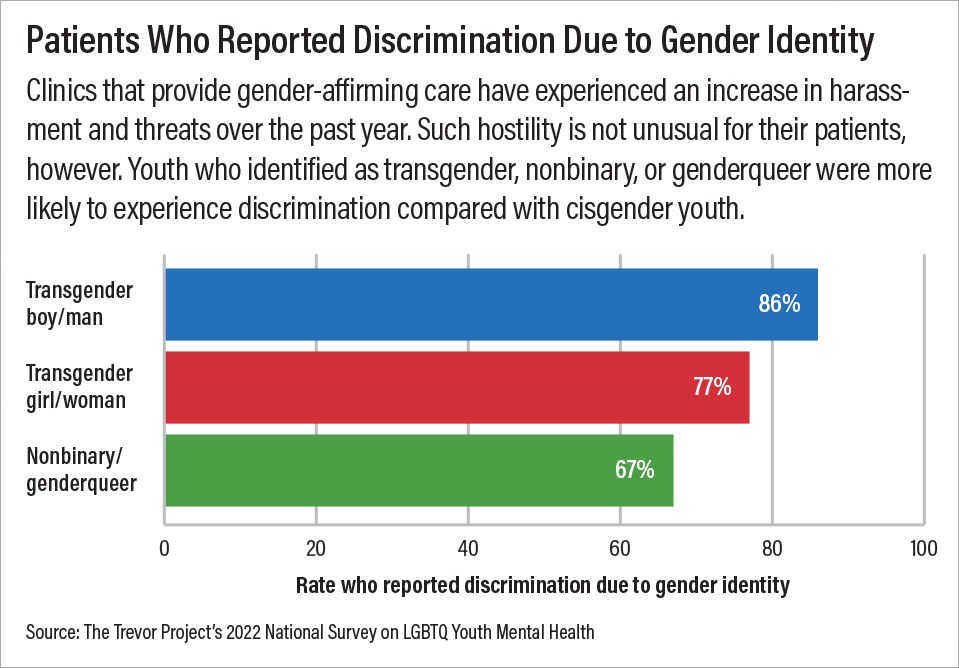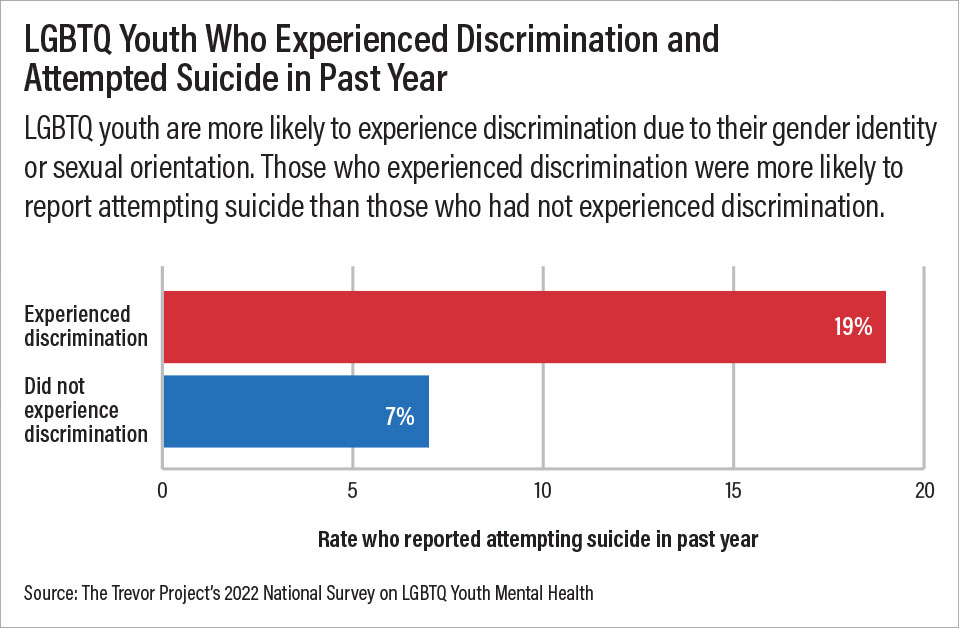Gender-Affirming Clinics Subject to Onslaught of Threats, Harassment
Abstract
Clinics and clinicians that provide gender-affirming care to transgender youth have seen a rise in harassment over the last year, including bomb and death threats. The threats echo the hostility that patients very often experience, which experts say is detrimental to their mental health.
Over the last three years, there has been an escalation of organized, political hostility toward the transgender community from people with agendas to restrict access to gender-affirming care for everyone, but particularly for transgender and gender diverse youth, said Alex Keuroghlian, M.D., M.P.H. This past year, particularly, has been very alarming.

The attacks on clinics that provide gender-affirming care underscore the importance of creating inclusive, welcoming, and safe health care spaces for transgender and gender-diverse patients, who regularly experience hostility and threats themselves, says Alex Keuroghlian, M.D., M.P.H.
Keuroghlian is the director of the Division of Education and Training at The Fenway Institute and the Michele and Howard J. Kessler Chair and director of the Division of Public and Community Psychiatry at Massachusetts General Hospital. Keuroghlian is also the principal investigator of the National LGBTQIA+ Health Education Center, whose goal is to improve health care for LGBTQIA+ people at health centers.
In December, authorities arrested and charged a man from Texas for making a death threat to one of the Center’s affiliated physicians, according to the U.S. Attorney’s Office for the District of Massachusetts. He claimed in his message that there was a group of people on their way to “handle” the physician, whom he accused of castrating children. “You’re all gonna burn,” the man said in the message.
That incident was far from isolated. Such attacks have targeted clinics in Akron, Boston, Nashville, Seattle, Washington D.C., and more. Many of the harassment campaigns, which included threatening phone calls, emails, and social media messages, were prompted by conservative pundits and high-profile social media accounts that spread false accusations about the clinics. The attackers asserted that the clinics were mutilating children and giving them “chemical castration drugs,” among other claims.
Vanderbilt University Medical Center and Boston Children’s Hospital have been the subject of two such harassment attacks. Clinicians at Boston Children’s Hospital were accused of giving hysterectomies to children (which the hospital denies, according to a statement posted on Twitter). Vanderbilt was accused of pressuring parents who might be hesitant to consent to gender-affirming care for their children (which the medical center also denies according to a statement made on its website).

The threats have prompted many clinics to remove information about their staff from their websites in order to protect them, which advocates fear could make it even more difficult for patients to access care, according to an article in STAT. In October, the American Academy of Pediatrics, the AMA, and the Children’s Hospital Association sent a joint letter to Attorney General Merrick Garland, urging him to investigate the organizations, individuals, and entities that are coordinating and carrying out the attacks.
“Attacks against health care institutions that threaten violence, intimidation, and physical harm have left hospitals, staff, and their communities shaken,” the organizations wrote in the letter. “Families seeking care at these institutions as well as those providing their care fear for their personal safety in the wake of these attacks.”
“People working in the field are now more vigilant and intentional about protecting the safety of patients and the communities we serve,” Keuroghlian said. “I have been heartened by the dedication, determination, and resolve of providers of gender-affirming care to continue to do this work.”
‘Our Patients Are Very, Very Afraid’
The attacks have had a significant impact on those who provide care to transgender youth, but especially on the patients, Keuroghlian said.
The Trevor Project conducted a survey from September 20 to December 31, 2021, that included nearly 34,000 LGBTQ youth aged 13 to 24. Of the respondents, 37% of transgender and nonbinary youth reported that they had been physically threatened or harmed due to their gender identity, and 71% reported that they had experienced discrimination based on their gender identity. Further, LGBTQ youth who experienced threat or harm due to their sexual orientation or gender identity reported attempting suicide in the past year nearly three times as much as those who did not experience threat or harm.

The hostility toward gender-affirming care clinics reflects the direct violence that individuals in the transgender and gender diverse community regularly experience, Keuroghlian said. “This has been personally distressing for health care professionals, but I find it helpful and grounding to focus entirely on the impact it has on the communities we serve, who often don’t have the privilege that health care professionals and clinicians have had in our country and in society at large.”
Kate Thomas, Ph.D., director of mental health services at the Johns Hopkins Center for Transgender Health, has been working with the transgender community for nearly 40 years. She has never seen so much widespread, national hostility toward her patients, she said, in part because the transgender and gender expansive community was not as high on the national radar as it has become in recent years.
The gender-affirming care community was excited when more transgender people gained prominence in the media and in Hollywood, and members of the transgender community saw themselves represented on the big screen, Thomas said. But that greater visibility also created a backlash. In recent years there has been a flood of new legislation aimed at restricting access to gender-affirming care, especially for youth (“Record Number of Anti-Trans Bills Filed in States This Year”).
“Our patients are very, very afraid,” Thomas said. “I can’t think of one of my patients lately who hasn’t brought up the political climate and what it means for them.”
Creating Inclusive Health Care Environments
The current climate of hostility aimed at the transgender community, and the impact that has on patients and families, highlights the urgent need to create inclusive, affirming, and welcoming health care environments, ensuring that gender-affirming care is incorporated into primary pediatric and medical care, Keuroghlian said.
“Patients regularly express distress about the threats they are personally experiencing and threats to the community at large,” Keuroghlian said. “This manifests as increases in depressive, anxiety, and posttraumatic stress symptoms, as well as decreased engagement in care. There is well-founded mistrust of the health care system in transgender and gender diverse communities, who have experienced their basic human right to access care being used as a political issue. It erodes the sense of safety people feel when engaging in health services.”
Jonah DeChants, Ph.D., a research scientist with The Trevor Project, said that the first and most important thing that transgender youth need is safety. “They need to feel safe at home and in their communities,” he said. He noted that having at least one affirming adult in a transgender youth’s life is associated with one-third lower odds of attempting suicide.
“Doctors working with young people can be that adult who tries to understand their LGBTQ identity from a place of openness and understanding,” he said. “That can be incredibly impactful.” ■



